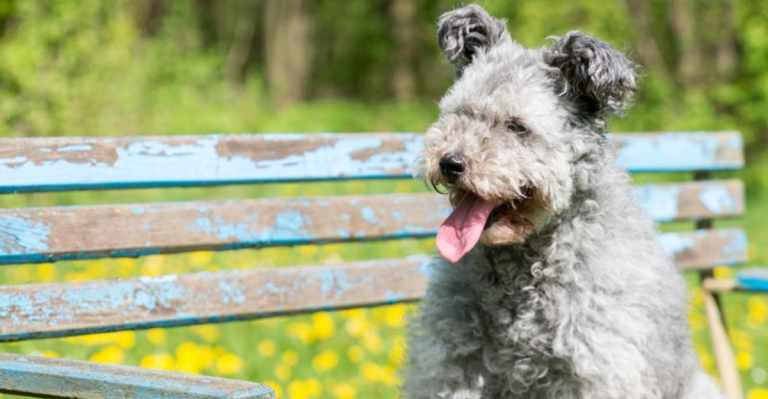From Chill to Chaotic: How 10 Popular Dog Breeds React to Life’s Curveballs
Dogs handle surprises and changes in their own unique ways. Just like humans, our canine friends have distinct personalities that shape how they cope with everything from thunderstorms to unexpected visitors.
Understanding your dog’s natural reaction style can help you support them through life’s challenges and keep your furry friend happy and balanced.
1. Border Collie: The Sensitive Genius

These brainy herders notice everything – from a new piece of furniture to your slight change in mood. Their incredible awareness makes them highly responsive to environmental shifts, sometimes appearing anxious when routines change.
Border Collies thrive on consistency and may become stressed when their carefully ordered world gets disrupted. Their intelligence can work against them during chaotic moments. Owners can help by maintaining predictable schedules and providing mental challenges to keep their active minds focused.
When facing unavoidable changes, gradual introductions and positive reinforcement will help your Border Collie adjust without becoming overwhelmed.
2. Labrador Retriever: The Roll-With-It Companion

Labs earned their reputation as America’s favorite dog partly because of their incredible adaptability. Whether facing a move to a new home, meeting strangers, or enduring a chaotic family gathering, these good-natured pups typically maintain their cheerful disposition.
Blessed with a steady temperament, Labradors generally approach new situations with curiosity rather than fear. Their food-motivated nature helps too – most Labs can be distracted from potential stressors with a tasty treat!
This adaptability doesn’t mean they’re immune to stress, but rather that they recover quickly and don’t tend to hold grudges. Their resilient spirit makes them excellent therapy dogs and family pets.
3. German Shepherd: The Vigilant Protector

When life throws curveballs, German Shepherds stand at attention. These dogs possess a natural watchfulness that kicks into high gear during unusual situations. A strange noise at night?
Your Shepherd heard it first and is already investigating. Their protective instincts mean they react swiftly to perceived threats, sometimes with barking or defensive posturing.
This vigilance stems from their working heritage as police and military dogs where alertness saves lives. Proper training channels this reactivity into appropriate responses rather than anxiety.
German Shepherds with good socialization learn to distinguish between genuine threats and harmless changes, making them reliable guardians who don’t overreact to every new situation.
4. Chihuahua: The Tiny Stress Machine

Don’t let their small size fool you – Chihuahuas experience big emotions! These pocket-sized pups often react dramatically to changes, from trembling at thunderstorms to barking fiercely at unfamiliar faces.
Their heightened stress response isn’t just attitude; it’s partly due to their size. Being so small in a big world naturally makes them more cautious. Chihuahuas form intense bonds with their favorite humans and may become anxious when separated or when their person interacts with strangers.
Creating safe spaces where your Chihuahua can retreat when overwhelmed helps manage their stress. Many find comfort in warm blankets, quiet corners, or specialized anxiety wraps during particularly challenging situations.
5. Golden Retriever: The Unshakable Optimist

Life’s storms rarely ruffle a Golden Retriever’s sunny disposition. These dogs approach changes with a wagging tail and what seems like a permanent smile. T
heir legendary patience makes them particularly adept at handling chaotic households with young children or other pets. Golden Retrievers possess an innate emotional intelligence that helps them gauge appropriate reactions.
They sense when to offer comfort during family tensions or when to provide comic relief with their playful antics. This balanced temperament isn’t accidental – it results from generations of selective breeding for companion qualities.
While individual personalities vary, most Goldens maintain their trademark calm during situations that might send other breeds into a tailspin.
6. Shiba Inu: The Dignified Observer

Shibas approach life’s challenges with a characteristic blend of independence and caution. Unlike more demonstrative breeds, these ancient Japanese dogs process new situations with dignified reserve, carefully assessing before reacting.
Behind their fox-like expressions, Shibas are constantly evaluating their surroundings. They might appear aloof, but they’re actually highly attuned to changes in their environment. When truly stressed, they may resort to the famous “Shiba scream” – a distinctive vocalization that signals their displeasure.
Their self-reliant nature means they often prefer to handle stressors in their own way rather than seeking comfort. Owners who respect this independence while providing gentle guidance help their Shibas navigate changes with confidence.
7. Siberian Husky: The Thrill-Seeking Explorer

Huskies don’t just tolerate change – they crave it! These adventurous souls approach new situations with boundless curiosity and enthusiasm. A sudden detour on your walking route? Your Husky considers it an exciting new adventure to explore.
Their wolf-like appearance matches their wild spirit. Bred to run for miles across changing Arctic landscapes, Huskies possess a natural adaptability to environmental shifts. This same trait makes them notoriously escape-prone – they’re always wondering what’s on the other side of the fence!
Their playful approach to novelty can be refreshing but sometimes challenging for owners. Providing structured outlets for their exploratory nature through varied activities helps channel their energy positively when life throws unexpected changes.
8. Basset Hound: The Unflappable Philosopher

With their droopy eyes and relaxed demeanor, Basset Hounds epitomize the “keep calm and carry on” approach to life’s surprises. These low-key canines rarely get worked up about changes that would send other dogs into a frenzy.
Their mellow reaction style stems partly from their hunting heritage. As scent hounds, they learned to focus single-mindedly on tracking, tuning out distractions. This selective attention serves them well during chaotic moments. Bassets may seem lazy, but they’re actually conserving energy for what truly matters.
New furniture? Not worth getting up from the couch. Dinner time? Suddenly very alert! This ability to prioritize helps them maintain their legendary calmness during most of life’s curveballs.
9. Australian Shepherd: The Organized Dynamo

Australian Shepherds approach life’s challenges with a working dog’s mindset: “What’s the job here, and how do I fix it?” These highly intelligent herders thrive on order and may become visibly anxious when their structured world becomes chaotic.
Their keen awareness makes them quick to notice environmental changes – from a guest’s arrival to a storm brewing miles away. Without proper guidance, this alertness can transform into nervous energy or problematic behaviors like excessive barking or nipping. Aussies excel when given clear expectations during turbulent times.
Their natural problem-solving abilities mean they can adapt well to changes if they understand the new “rules.” Consistent training and mental stimulation help keep these brilliant dogs balanced even when life gets unpredictable.
10. French Bulldog: The Adaptable Homebody

Frenchies bring a unique blend of adaptability and stubbornness to life’s challenges. These compact companions generally handle moderate changes with their signature bat-eared charm, adapting easily to new people or schedule adjustments.
Their limits become apparent during extreme situations. Hot weather, excessive exercise, or highly chaotic environments can stress these brachycephalic dogs whose breathing isn’t designed for intense situations.
Frenchies typically communicate their discomfort clearly – first with those expressive eyes, then by planting their stocky bodies firmly in protest. Their apartment-friendly nature makes them surprisingly flexible about living situations, but they draw the line at physical discomfort.
Smart Frenchie owners recognize these boundaries and provide stability during major life transitions.





